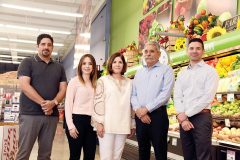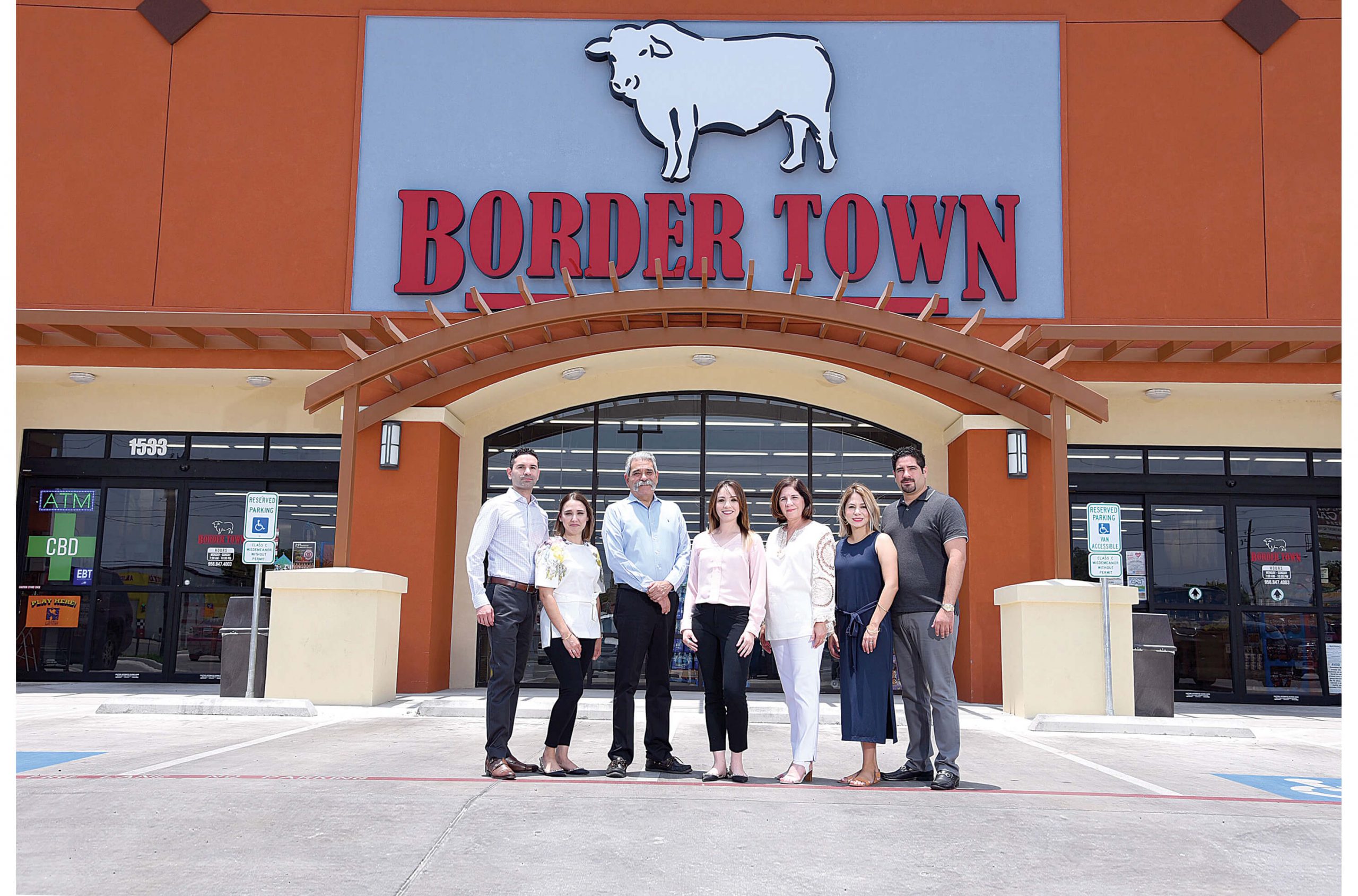‘Economic reality’ varies, but merchandising mix consistent
From staff reports
Amando Pena Jr. got into the grocery business working for his father. He carries on the tradition now with his own family.
“I managed my parent’s grocery stores since 1981,” Pena said. “I dreamt of owning my own group of stores one day. Despite huge obstacles and countless setbacks, I was determined to realize my dream. My wife and children made it possible.”
And if you ask what makes him most proud, Pena will tell you it is that he and his wife, Dalinda, are able to work with their three children, Liana, Amando III and Reynaldo.
“My wife and I have many years of experience, but without their intelligence and energy, we could not have grown so fast,” Pena said.
He is proud to operate five Border Town stores and also the grocery-hardware “twin store” concept that has made his company successful. It currently operates five grocery stores, which each measure about 11,500 square feet. All five will have similar-sized hardware stores attached. The stores are in Alto Bonito, Los Villarreales, Rio Grande City, Roma and Sullivan City.
There are currently two new stores under construction with plans for two additional stores by summer 2022. Pena said they expect to grow at a pace of one store about every nine months.

Pena’s retail experience started early. His parents owned a full-service Gulf station before operating a grocery store.
He worked for his parents for 28 years before branching out on his own. With his experience, he knew what he wanted – a grocery store with a focus on fresh meat. He found a location and made an offer. Border Town was born.
Each of the Pena children has his or her own responsibilities within the company. Amando III manages the office and operations. Liana is the merchandiser and Reynaldo the retailer, Pena said.
And the family is living out the Border Town slogan, “By family for family,” as it continues.
“My granddaughter, Alexia joined the team this year…the fourth-generation retailer,” said Pena.
The family chose to test its merchandising skills with the grocery-hardware concept in more rural areas before moving into a market where they would be up against big-box retailers. They then opened the fourth location in Rio Grande City, where H-E-B and Walmart are among the competitors.
“We built a grocery store and a hardware store with a much smaller footprint,” Pena said. “The store proved to be a great success.”
The fifth store in Roma was a “natural expansion” geographically, Pena said. Everything the family had learned to that point was poured into that location.
“Each store has a different economic reality, but our merchandising mix remains consistent in all of our stores. We do well with Mexican products but that’s not what we’re about,” Pena said. “We offer products that Hispanics want to buy and that is not necessarily Mexico-imported products.”
The family’s stores are close to the U.S.-Mexico border, which presents its own set of challenges. Pena described the border economy as having been depressed for many years.
“We operate our stores in that reality and expect that the economy has nowhere to go but up. We started Border Town markets when the border economy was already depressed due to violence in Mexico. The local economy can only get better,” he said. “A new normal has been established.”
Some problems are the same no matter where the small town is located. Dollar stores have been proliferating along the border, just as they have in rural areas across the U.S.
“They seem to be pulling back now,” Pena said. “Some Family Dollars are now closing.
“Our stores are clustered in really small communities; five to 10 miles apart. Word of mouth is really important, especially in todays’ age of social media.”
And store culture is something that Border Town does not take for granted, said Pena, noting it is “as important as cleanliness and price image.”
“We encourage our employees to be proactive in creating a cheerful and friendly shopping environment,” he added. “We encourage the managers to maintain a positive workplace environment.”
COVID-19 has changed everything about the way that Border Town does business, though, Pena said.
“We listened to our employees, and we implemented many safety protocols,” he said. “Needless to say, they were really scared about getting infected and infecting their family members. Many live in multigenerational homes.
“Starr County experienced two major outbreak that made national news. This happened because our locals let their guard down and began to host family gatherings – graduation parties, Mother’s Day, Memorial Day, Father’s Day.
“It got so bad that our local hospital had to create an end-of-life plan and send severely sick patients home to die. As a deacon for the Catholic Church I was asked to be part of the team that informed family members that there was no more that the hospital could do for their family member.”
With Pena serving as a deacon, and with his wife and daughter’s involvement in various ministries, the family’s role in Texas extends beyond Border Town. And it was extended even further with the pandemic.
“The pandemic crisis has elevated the role of the deaconate ministry. I try to be vigilant while serving the Catholic community in order to stay healthy. The faithful hunger for spiritual nourishment, therefore I try to rise to the challenge and come up with different ways to give drink to the thirsty and feed the hungry. Technology has become a great tool to reach those who are at risk because of underlying conditions.”

